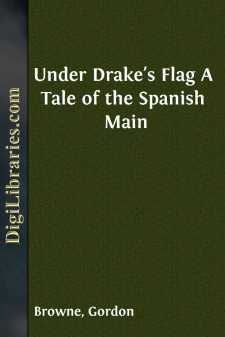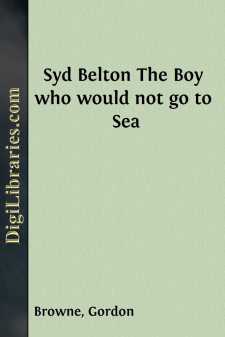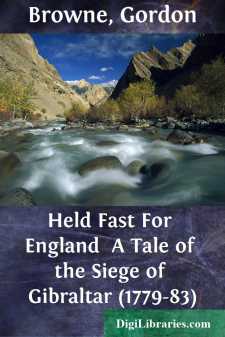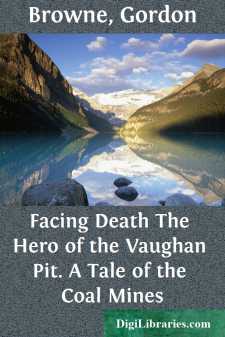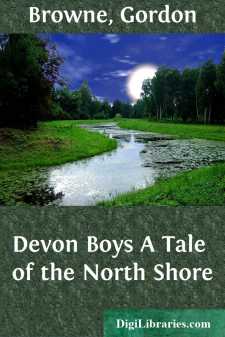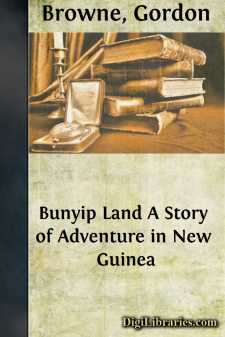Categories
- Antiques & Collectibles 13
- Architecture 36
- Art 48
- Bibles 22
- Biography & Autobiography 813
- Body, Mind & Spirit 142
- Business & Economics 28
- Children's Books 17
- Children's Fiction 14
- Computers 4
- Cooking 94
- Crafts & Hobbies 4
- Drama 346
- Education 46
- Family & Relationships 57
- Fiction 11829
- Games 19
- Gardening 17
- Health & Fitness 34
- History 1377
- House & Home 1
- Humor 147
- Juvenile Fiction 1873
- Juvenile Nonfiction 202
- Language Arts & Disciplines 88
- Law 16
- Literary Collections 686
- Literary Criticism 179
- Mathematics 13
- Medical 41
- Music 40
- Nature 179
- Non-Classifiable 1768
- Performing Arts 7
- Periodicals 1453
- Philosophy 64
- Photography 2
- Poetry 896
- Political Science 203
- Psychology 42
- Reference 154
- Religion 513
- Science 126
- Self-Help 84
- Social Science 81
- Sports & Recreation 34
- Study Aids 3
- Technology & Engineering 59
- Transportation 23
- Travel 463
- True Crime 29
Gordon Browne
Gordon Browne (1858-1932) was a prolific English illustrator and author, renowned for his detailed and expressive artwork in children's books and classic literature. The son of notable artist Hablot Knight Browne, known as "Phiz," Gordon Browne's illustrations graced the works of esteemed authors like Charles Dickens, Robert Louis Stevenson, and Anna Sewell. His artistic legacy, characterized by its intricate line work and vivid character depictions, continues to be celebrated in the realms of literary and visual arts.
Author's Books:
Sort by:
by:
Gordon Browne
Chapter 1: The Wreck on the Devon Coast. It was a Stormy morning in the month of May, 1572; and the fishermen of the little village of Westport, situate about five miles from Plymouth, clustered in the public house of the place; and discussed, not the storm, for that was a common topic, but the fact that Master Francis Drake, whose ships lay now at Plymouth, was visiting the Squire of Treadwood, had...
more...
by:
Gordon Browne
Professor Von Schalckenberg makes a startling Suggestion. The “Migrants’” Club stands on the most delightful site in all London; and it is, as the few who are intimately acquainted with it know full well, one of the most cosy and comfortable clubs in the great metropolis. It is by no means a famous club; the building itself has a very simple, unpretentious elevation, with nothing whatever about...
more...
by:
Gordon Browne
The boy who would not go to sea. “Here you, Syd, pass the port.” Sydney Belton took hold of the silver decanter-stand and slid it carefully along the polished mahogany table towards where Admiral Belton sat back in his chair. “Avast!” The ruddy-faced old gentleman roared out that adjuration in so thunderous a way that the good-looking boy who was passing the decanter started and nearly turned...
more...
by:
Gordon Browne
CHAPTER I.The Troubles of King Prigio. “I’m sure I don’t know what to do with that boy!” said King Prigio of Pantouflia. “If you don’t know, my dear,” said Queen Rosalind, his illustrious consort, “I can’t see what is to be done. You are so clever.” The king and queen were sitting in the royal library, of which the shelves were full of the most delightful fairy books in all...
more...
by:
Gordon Browne
PREFACE. In compiling the following History from the Archives of Pantouflia, the Editor has incurred several obligations to the Learned. The Return of Benson (chapter xii.) is the fruit of the research of the late Mr. Allen Quatermain, while the final wish of Prince Prigio was suggested by the invention or erudition of a Lady. A study of the Firedrake in South Africa—where he is called the...
more...
by:
Gordon Browne
Preface. The Siege of Gibraltar stands almost alone in the annals of warfare, alike in its duration and in the immense preparations made, by the united powers of France and Spain, for the capture of the fortress. A greater number of guns were employed than in any operation up to that time; although in number, and still more in calibre, the artillery then used have in, modern times, been thrown into the...
more...
by:
Gordon Browne
EVIL TIDINGS. row of brick-built houses with slate roofs, at the edge of a large mining village in Staffordshire. The houses are dingy and colourless, and without relief of any kind. So are those in the next row, so in the street beyond, and throughout the whole village. There is a dreary monotony about the place; and if some giant could come and pick up all the rows of houses, and change their...
more...
by:
Gordon Browne
Self and Friends. Bigley Uggleston always said that it was in 1753, because he vowed that was the hot year when we had gone home for the midsummer holidays from Barnstaple Grammar-school. Bob Chowne stuck out, as he always would when he knew he was wrong, that it was in 1755, and when I asked him why he put it then, he held up his left hand with his fingers and thumb spread out, which was always his...
more...
by:
Gordon Browne
How I made my Plans and they were Endorsed. “Now, Master Joseph, do adone now, do. I’m sure your poor dear eyes’ll go afore you’re forty, and think of that!” “Bother!” “What say, my dear?” “Don’t bother.” “You’re always running your finger over that map thing, my dear. I can’t abear to see it.” Nurse Brown looked over the top of her spectacles at me and shook her head,...
more...


